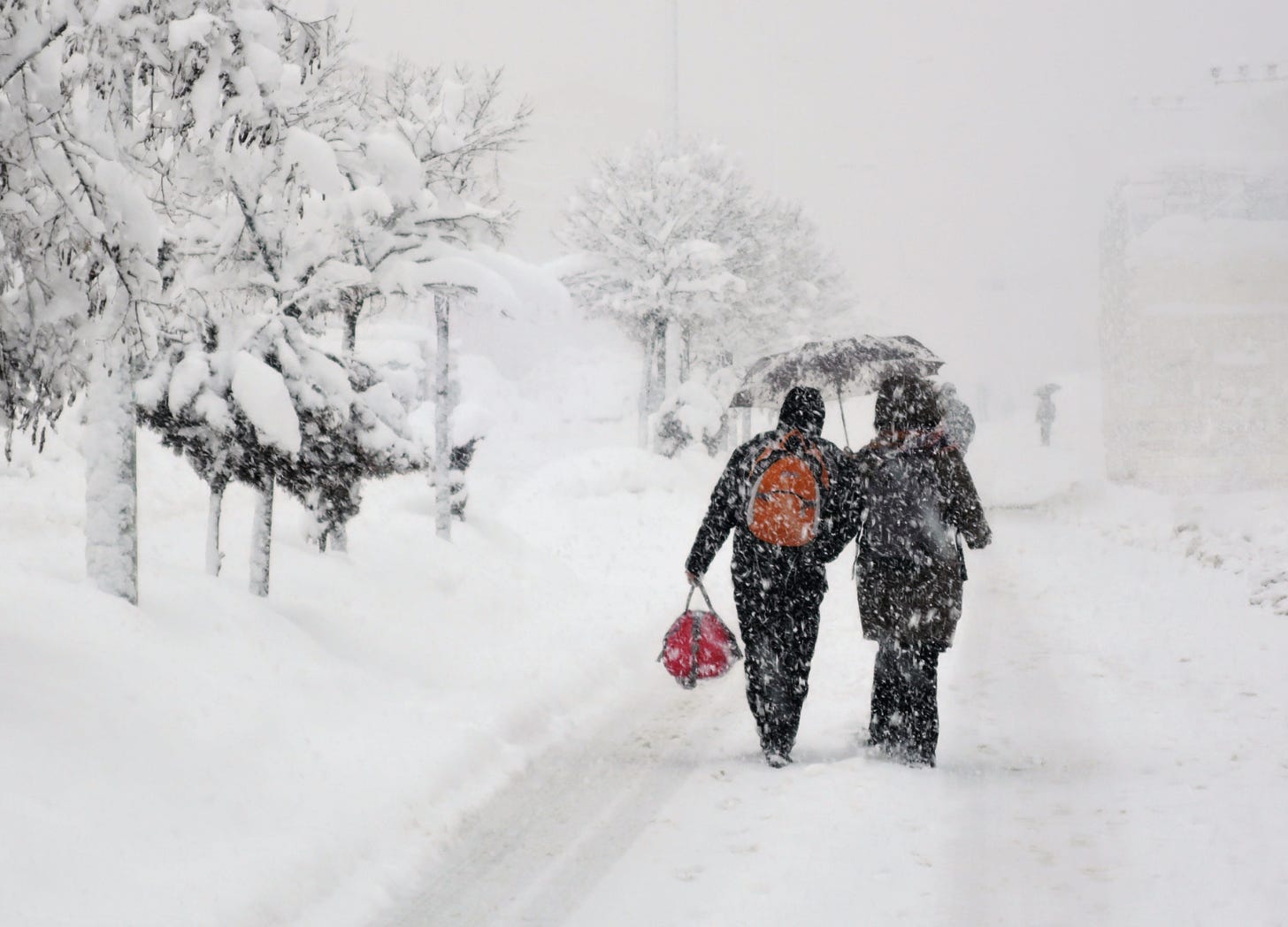Welcome to Writing in Company. Each week I share some words and a writing prompt, meant to be jumping-off points for you to write about what matters. Use the prompts however you like—to journal, to draft thoughts for your own writing project, as meditation or prayer ideas, or for another creative endeavor. If this one doesn’t resonate, take a look back through the archive for one that does. Grab your pen and paper, and let your words loose on the page.
If you want to skip right to the prompt, without any preliminaries or wordy words from me, scroll on down to the heading: a writing prompt.
My sister and I find our way in snowy Vienna. She wears her fur-trimmed patchwork coat. I wear my practical parka and clutch a public transport map. We take the Underground, transferring when necessary, and emerge triumphantly near the museum quarter.
We talk about the hospital, which she can’t remember since a motorcycle knocked her off her bike. But I remember.
I remember stroking her face while tears ran from her eyes when she came to, intubated and afraid. Nodding when I asked if I should explain it again—what happened, and where she was.
I remember trying to keep her cool, flapping the bedsheet over her naked body, blowing on her neck when her bruised brain told her she was hot. Trying to rearrange the sheet over her when our father came in the ICU, and watching her kick it off again.
I remember when she read aloud the title of the book I wasn’t reading: Naked (fittingly) by David Sedaris.1 And I remember when she talked about something else but kept using “Sedaris” as the noun in her sentences.
I remember watching anxiously, like a parent through the preschool window, as the occupational therapist had her wipe her face with a washcloth, brush her hair, count to ten. She did it all, the college professor skyrocketing again to the head of her class.
Now 18 months later we sit in a smoky museum café, drinking coffee and some kind of pineapple fruit drink, talking about the hospital in the past tense. She doesn’t remember me being there. For two weeks I sat by her bed, held her hand, watched her monitors, untied her wrist restraints, then sat up all night to catch her when she tried to get up. My first night back at home I grabbed my husband when he rolled over in bed, scaring us both awake.
She doesn’t remember, but I do.
The coffee in Vienna is better than in the hospital. Even with the smoke, I breathe easier, listening to my sister talk about Hegelian dialectics. I don’t know what that is, but she does. She remembers pieces of her old life now. That’s enough for today.
I put some euros down on the table, and help her find the exit. We will make our way back with only one wrong transfer on the Underground. We will walk slowly, remembering—not the same things, but at the same time. Maybe that’s the best any of us can hope for—to find our way arm-in-arm, remembering with someone who has seen us naked and doesn’t mind that we forgot.
This piece was inspired by notes I made beside my sister’s hospital bed, years ago. Hallelujah, she is well and thriving—teaching, making award-winning films2, and getting married next week to her partner who also remembers the hospital days and nights.
a writing prompt
Write about something you remember, but someone else has forgotten.
like | comment | share
Let me know what you think about the prompt, or come back and add some of what you write in the comments. Know someone who might enjoy this prompt or others? Please share!
Note: I am a Bookshop.org affiliate. If you purchase through my links to support independent bookstores, I may earn a small commission.








Last night I was reading Sarah Manguso’s Ongoingness: The End of a Diary and circled this quote:
Someday I might read about some of the moments I’ve forgotten, moments I’ve allowed myself to forget, that my brain was designed to forget, that I’ll be glad to have forgotten and be glad to rediscover as writing. The experience is no longer experience. It is writing. I am still writing.
Oh Julie,
The memory from your prompt feels so alive with such exquisite details and powerful thoughts about what happened to your sister and what is remembered and shared years later. It makes me wonder about the memories I hold. Despite the fact that they will differ from another who shared them: how do I assimilate them together? They are a collective memory and will putting them together make them more vivid and alive or minimize ‘my’ thoughts about it or ‘desensitize’ the whole memory. However, I am so blessed to be able to share fun, happy and sad memories and stories with my family that gather on Sunday evenings for dinner at my Mom’s house.
JoAnne